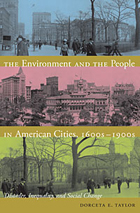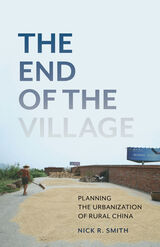New Urban Development: Looking Back to See Forward
Rutgers University Press, 2010
Cloth: 978-0-8135-4793-0 | Paper: 978-0-8135-5419-8 | eISBN: 978-0-8135-8133-0 (ePub) | eISBN: 978-0-8135-5038-1 (PDF)
Library of Congress Classification HT371.G7128 2010
Dewey Decimal Classification 307.76
Cloth: 978-0-8135-4793-0 | Paper: 978-0-8135-5419-8 | eISBN: 978-0-8135-8133-0 (ePub) | eISBN: 978-0-8135-5038-1 (PDF)
Library of Congress Classification HT371.G7128 2010
Dewey Decimal Classification 307.76
ABOUT THIS BOOK | AUTHOR BIOGRAPHY | REVIEWS | TOC
ABOUT THIS BOOK
The recent recession is one result of how local planning laws and practices have stifled competition, discouraged innovation, and artificially pushed up prices in America's most economically vibrant regions. Economist and consultant Claude Gruen unravels the story behind how these unintended consequences have resulted from the evolution of local zoning, growth controls, and laws intended to increase housing affordability.
New Urban Development traces how locally induced housing cost increases led federal policy-makers to toss out the safeguards against lending excesses that had been put in place during the 1930s. But the story begins much earlier, during the colonial era, continuing up through the mortgage collapse that ushered in the recession of 2008. In his sweeping history of these issues, Gruen considers gentrification, environmentalism, sprawl, anti-sprawl movements, and more. His clarification of how urban development change occurs backs up his recommendations for increasing the production of housing and replacing obsolete commercial and industrial spaces with development that serves the twenty-first-century economy. New Urban Development specifies thirteen changes to policies at the federal, state, and local levels to provide better and less expensive urban housing, desirable neighborhoods, and thriving workplaces across the country.
New Urban Development traces how locally induced housing cost increases led federal policy-makers to toss out the safeguards against lending excesses that had been put in place during the 1930s. But the story begins much earlier, during the colonial era, continuing up through the mortgage collapse that ushered in the recession of 2008. In his sweeping history of these issues, Gruen considers gentrification, environmentalism, sprawl, anti-sprawl movements, and more. His clarification of how urban development change occurs backs up his recommendations for increasing the production of housing and replacing obsolete commercial and industrial spaces with development that serves the twenty-first-century economy. New Urban Development specifies thirteen changes to policies at the federal, state, and local levels to provide better and less expensive urban housing, desirable neighborhoods, and thriving workplaces across the country.
See other books on: Cities and towns | Growth | Housing policy | Looking Back | Urban & Regional
See other titles from Rutgers University Press



























